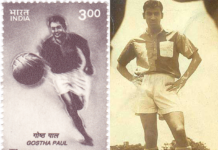Wolverhampton: Aston Villa stayed afloat in Midlands derby owing to a stoppage-time penalty by Anwar El Ghazi and several crucial saves by Emiliano Martínez winning 1-0. The clash produced 11 yellow cards as well as two reds. Villa’s Douglas Luiz and Wolves’ Joao Moutinho were the victims.
Villa gave start to their 19-year-old youth academy graduate Jacob Ramsey in central midfield, while Wolves also entrusted Fabio Silva, the 18-year-old in the playing XI. Villa sensed blood, as Wolves nearly struck and walked away with the game. As Silva shot through the legs of Ezri Konsa and it was beyond the reach of Martínez, but the ball bounced out of the upright.
Leander Dendoncker came up with a chance in the 80th minute, but Martínez stretched himself and saved the Belgian’s volley. Silva again tried to break the deadlock with an overhead kick, but Martínez did not allow the ball to go past him. Villa’s magic chance came when John McGinn was brought down inside the box by Nelson Semedo in stoppage time.
El Ghazi was assigned penalty duties who sent Rui Patrício the wrong way to give Villa the win. “This is a great result to come here to Wolves and keep a clean sheet and get the win. I thought it was a really tight game and I thought we started both halves better. We never really created big chances. When they countered and had their spells of pressure, we were indebted to our goalkeeper. It was a really good away performance from the whole team,” Villa coach Dean Smith said.
“It’s always disappointing to lose in the end like that, especially in a game where we played good,” Wolves coach Nuno Espirito Santo said after the match. When asked about the decisive penalty, “I didn’t see the images yet but the referee judged and VAR saw it, so keep on going,” he said.
“It was a very tense game with a lot of fouls but I think we controlled it in the second half. We created a lot of good, clear chances and we will try to keep on growing on this aspect. Being more clinical is something that we need.”





















